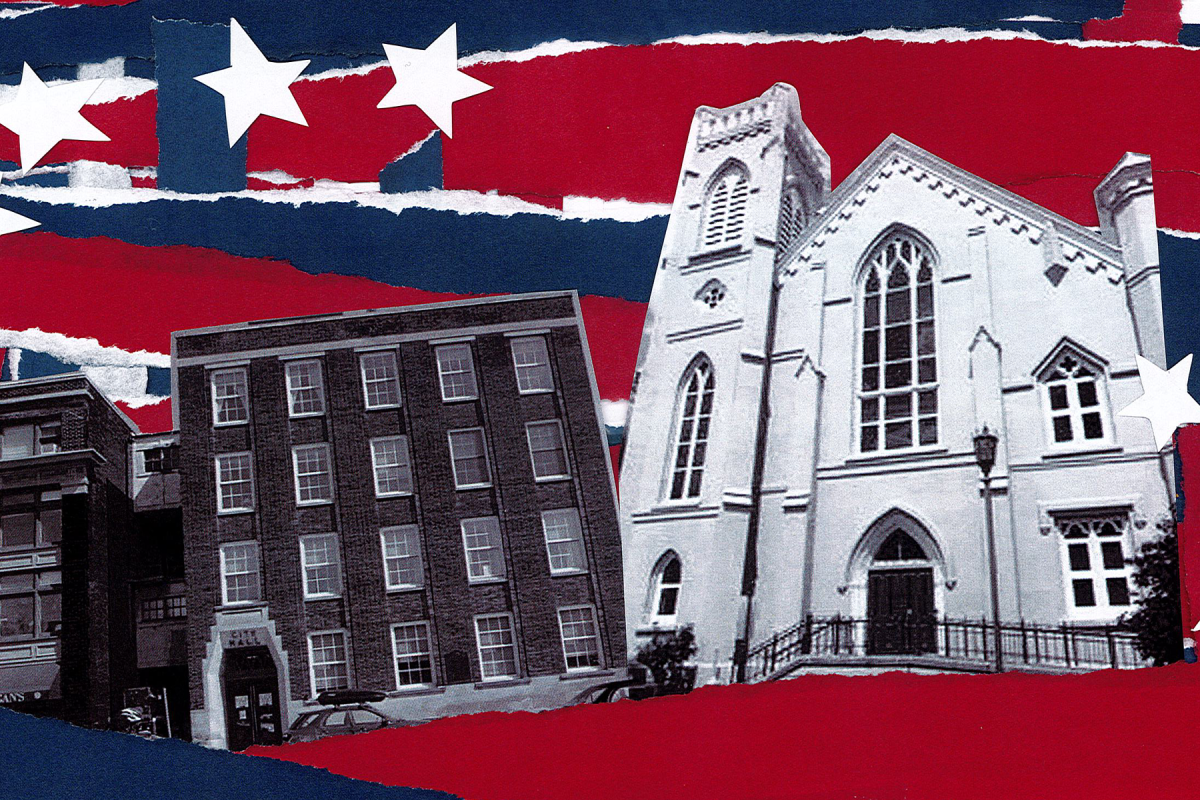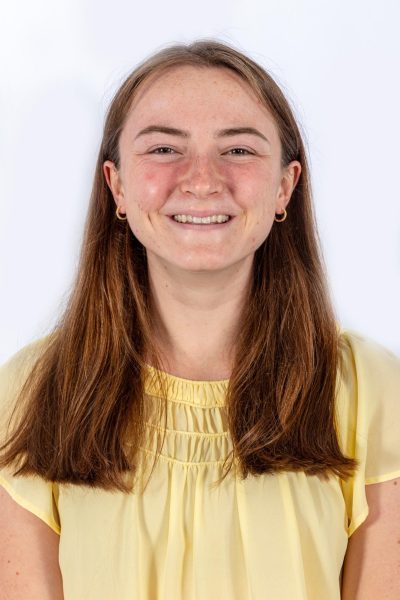Ithaca College tested a pilot program during Fall 2023 registration where the dean’s offices and Ithaca Seminar/Integrative Core Curriculum teams selected courses for all incoming first-year students, guided by the requirements for their major and an Academic Interests Survey.
Stacia Zabusky, associate provost for Academic Programs, said via email that the college collected information about the outcome of the program through the institutional data sources Slate and Banner. She shared this information in a presentation to the Faculty Council on Oct. 3, which she later shared with The Ithacan.
The college first tested selecting courses for students in summer 2022. College faculty selected all courses for 170 incoming students in the School of Humanities and Sciences exploratory program based on information collected in a survey about their interests and prospective majors.
Dean’s offices registered other incoming first-year students for their majors’ required courses and shared advising modules in Canvas to help students register for the rest of their courses starting July 25.
According to the presentation, 43% of first-year students registered for their Ithaca Seminar course by the start of Fall 2022 Orientation. This included the exploratory students who were registered by advising team members. The remaining students registered for their seminar course once they arrived on campus.
Overall, 61% of first-year students made changes to their schedules between the start of Fall 2022 Orientation and the end of the add/drop period. Zabusky said this included adding and dropping any course — seminar, major or elective.
Zabusky said this 61% included 57% of students who registered for a seminar course once they arrived on campus. She said most of the adjustments were adding courses rather than changing or dropping courses.
During the Faculty Council meeting, Zabusky said a negative experience with registration for students, faculty and staff prompted the college to reassess its registration procedures.
“Overall, the experience that the academic teams had in summer 2022 was a tremendous level of stress, anger, anxiety and complaints from families, parents on the phone to the president’s office, the provost’s office, the dean’s offices, unable to manage this registration process,” Zabusky said at the meeting. “It was really overwhelming for our colleagues in the dean’s offices, and so we really were trying to think hard about why would that happen? How can we avoid it?”
The presentation said that following the successful pilot with exploratory students and recommendations from the Center for Student Success and Retention team, the college decided to test selecting courses for all incoming first-year students in Fall 2023.
Ahead of Fall 2023, the college first required all incoming first-year students to complete the Academic Interests Survey by June 15. By the deadline, 85% of first-year students had submitted their Academic Interests Survey, and by Aug. 1, 97% of students had completed the survey.
The dean’s offices registered all incoming paid first-year students into the courses required for their major by June 20. The ICC and Ithaca Seminar team collaborated with the dean’s offices to register first-year students for an Ithaca Seminar, a required first-semester course for first-year students that guides students’ transition to college and introduces them to college-level academic work. The teams used the information from students’ Academic Interests Survey to register all first-year students for an ICSM course by July 6.
The teams registered students for electives according to their major, ICSM courses, ICC requirements and interests listed on the survey, if completed, by July 25.
According to the presentation, 41% of incoming first-year students changed one or more courses between the start of Fall 2023 orientation and the end of the add/drop period. This is a decline from the 61% of first-year students who made schedule adjustments during the same timeframe in 2022.
However, Zabusky said these figures are difficult to compare because all incoming first-year students in Fall 2022 who were not in the exploratory program registered themselves for courses. Most of the adjustments made between orientation and the end of the add/drop period were course additions — students completing their schedules.
In Fall 2023, the college’s advising team registered students for courses. Zabusky said 25% of the incoming first-year students who made course adjustments in Fall 2023 changed one or more elective courses or major courses. Some students added one-credit elective courses, PALs courses or music ensembles to their schedule. In the Center for Music, students were registered in a “placeholder” ensemble course, which they changed to the correct ensemble once they auditioned on campus.
From the start of orientation to the end of the add-drop period, 13% of all first-year students made changes to their seminar courses. The dean’s offices and advisers registered 96% of incoming first-year students in a specific choice seminar course or seminar course that matched their academic interests listed on the survey. Of the first-year students who selected a specific choice seminar course, 91% remained in the seminar assigned to them.
The 41% of incoming first-year students who changed their courses therefore reflects all schedule adjustments — adding, dropping and changing major, electives and seminar courses.
The presentation said the college is currently conducting a qualitative survey to collect additional data about the registration changes. The college plans to select courses for incoming first-year students again in Fall 2024 and implement changes based on the outcome of the 2023 registration process, including: adjusting the the interests listed on the Academic Interests Survey to ensure they closely reflect the course offerings; providing information about adding and dropping classes when schedules are shared with first-year students in August and during orientation; and sharing more information about how schedules are created with faculty advisers and seminar instructors.









